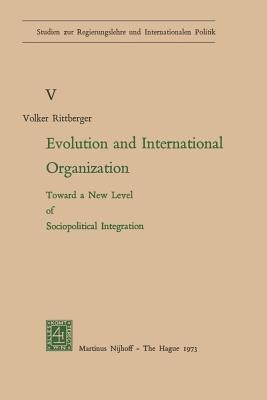
- We will send in 10–14 business days.
- Author: Volker Rittberger
- Publisher: Springer
- Year: 1973
- Pages: 120
- ISBN-10: 9401183805
- ISBN-13: 9789401183802
- Format: 15.6 x 23.4 x 0.7 cm, softcover
- Language: English
- SAVE -10% with code: EXTRA
Reviews
Description
phase two spanned the time from the late 1930's to about 1950 (Sohn's period III and Yalem's periods II and III). The literature produced during these years revealed an ambivalent reaction toward the apparent inability of international organizations, particularly the League of Nations, to control violence or contribute to the solution of conflicts among major powers. The advocates of a world state saw vindicated their position that an even stronger tmiversal supranational authority was required to assure the repression or deterrence of international aggression. However, the 'realist' position, laying claim to greater scientific validity, argued 'the inlportance of political and ideo- logical conflicts as barriers to international cooperation' (Yalem, 1966: 2). The excellent analysis by Ronald Rogowski (1968) shows how the twin positions of 'idealism' and 'realism' proceed from an identical paradigm of world politics: a nation-state system with little or no integrative superstructure. They differ, however, in their epistemological outlook. The realists display a positivistic standpoint: taking the inter- national system and its premise, power politics, as unalterable givens, they inquire into the feasibility of international organization under these circumstances. The idea- lists adopt what one might call a critical approach toward social analysis: they do not deny the positive validity of the realists' fmdings, but they reject the notion that power politics is an mlalterable impediment.
EXTRA 10 % discount with code: EXTRA
The promotion ends in 19d.06:06:49
The discount code is valid when purchasing from 10 €. Discounts do not stack.
- Author: Volker Rittberger
- Publisher: Springer
- Year: 1973
- Pages: 120
- ISBN-10: 9401183805
- ISBN-13: 9789401183802
- Format: 15.6 x 23.4 x 0.7 cm, softcover
- Language: English English
phase two spanned the time from the late 1930's to about 1950 (Sohn's period III and Yalem's periods II and III). The literature produced during these years revealed an ambivalent reaction toward the apparent inability of international organizations, particularly the League of Nations, to control violence or contribute to the solution of conflicts among major powers. The advocates of a world state saw vindicated their position that an even stronger tmiversal supranational authority was required to assure the repression or deterrence of international aggression. However, the 'realist' position, laying claim to greater scientific validity, argued 'the inlportance of political and ideo- logical conflicts as barriers to international cooperation' (Yalem, 1966: 2). The excellent analysis by Ronald Rogowski (1968) shows how the twin positions of 'idealism' and 'realism' proceed from an identical paradigm of world politics: a nation-state system with little or no integrative superstructure. They differ, however, in their epistemological outlook. The realists display a positivistic standpoint: taking the inter- national system and its premise, power politics, as unalterable givens, they inquire into the feasibility of international organization under these circumstances. The idea- lists adopt what one might call a critical approach toward social analysis: they do not deny the positive validity of the realists' fmdings, but they reject the notion that power politics is an mlalterable impediment.


Reviews